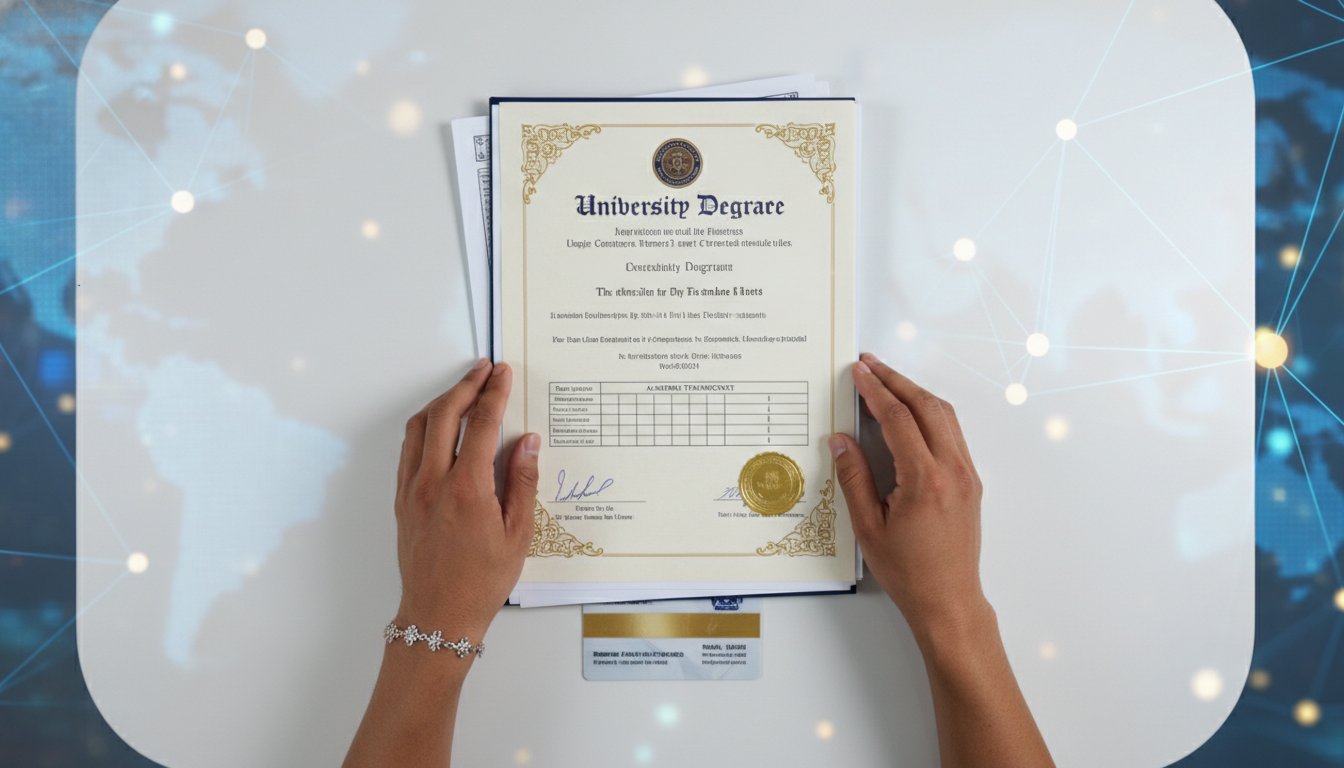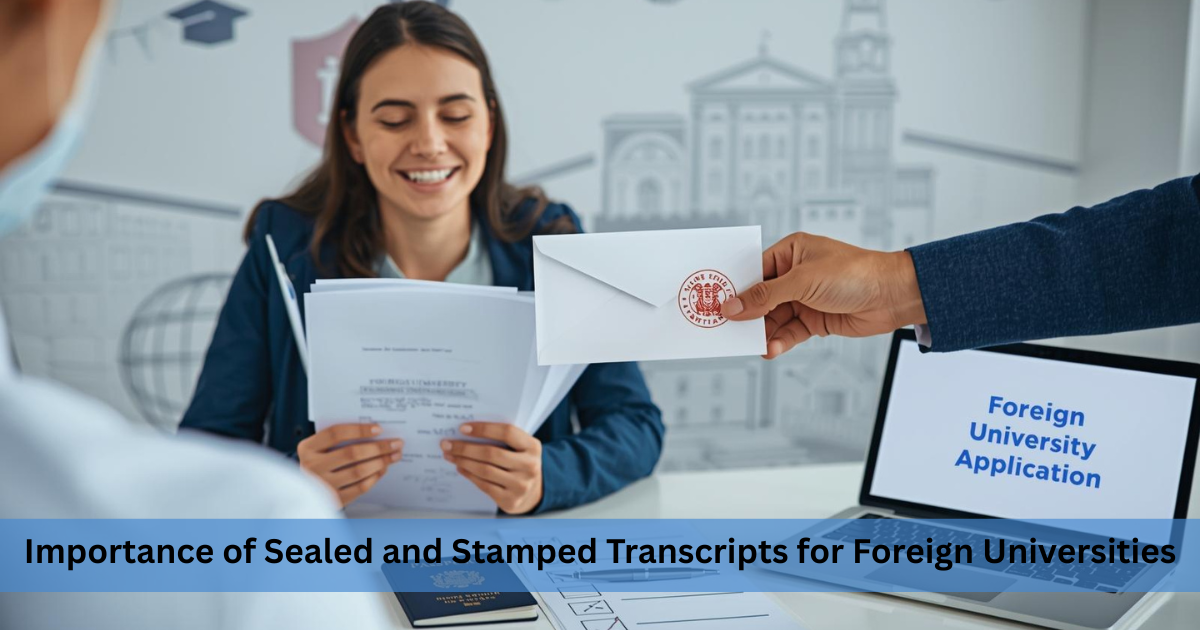Understanding Document Apostille: An Introduction
Document Apostille is a form of authentication issued to documents for use in countries that are part of the Hague Apostille Convention. If you’re planning on studying abroad and the country is a member of this convention, you’ll need to apostille your educational documents. This certification ensures that your documents are recognized internationally without needing further validation, making your move smoother. Think of the Apostille as a stamp of approval that confirms your documents are legit and can be trusted by foreign authorities. It’s a crucial step for students heading abroad because it validates your academic credentials. Getting this done involves submitting your documents to the designated authority in India, usually the Ministry of External Affairs, who then attaches the Apostille. Remember, not every document automatically qualifies; it must first be authenticated by the state from which it originated. So, start this process early to avoid any last-minute hassles.
Need help with the Document Apostille Process? Contact Us Now!
Why is Apostille Important for Indian Students Studying Abroad?
For Indian students eyeing an education abroad, getting your documents apostilled is like getting a golden ticket for your journey. An apostille stamp is a kind of international attestation that 117 countries, part of the Hague Convention, recognize. This little stamp on your educational documents, personal papers, or commercial certificates proves that your documents are legit across these countries. It’s a step beyond the usual verification, assuring foreign institutes and governments that your paperwork is genuine and recognized by the Indian government. Without this stamp, your documents might as well be just pieces of paper abroad. It’s all about making your eligibility undeniable, ensuring that when you’re aiming for higher studies in countries like the USA, UK, Australia, or any other apostille-recognizing nation, your documents are not questioned. In short, for Indian students going abroad, an apostille is not just important; it’s essential. It turns your documents into keys that unlock international education opportunities.
Read more: Unlocking Canadian Dreams: A Guide to Transcripts for WES
The Apostille Process in India: A Step-by-Step Guide
Getting your documents apostilled in India is an essential step if you’re aiming to study abroad. Apostille stamps make your educational documents valid outside India. Let’s break down how you can navigate this process smoothly. First, understand that any document you want apostilled needs to be first authenticated. This means, the Home Department or the Human Resource Department (HRD) of your state verifies your documents. Once this step is clear, head to the Ministry of External Affairs (MEA) for the apostille. Here’s a simplified guide to follow:
- Prepare your documents: Make sure you have all original documents and photocopies ready.
- Authentication: Get these documents verified by the HRD of your state. This step is crucial.
- Visit the MEA: After HRD authentication, take your documents to the MEA for the apostille stamp. Remember, the MEA won’t entertain your documents without the HRD’s approval.
- Collect your apostilled documents: Once stamped by the MEA, your documents are valid for use in all countries that are part of the Hague Convention.
Remember, timing is everything. Start early as the process can take several weeks. With this guide, you’re now set to make your academic documents worldwide valid. Ready to take on the world?
Required Documents for Apostille in India
To get your documents apostilled in India for higher education abroad, you need a clear set of documents. Think of it as gathering your gear before a big journey. First, grab your original educational certificates. This includes your 10th and 12th-grade certificates, degree certificates, and any other diplomas or relevant academic records. Don’t forget your personal documents – birth certificates and passport copies are crucial. Lastly, if you’ve got job experience that supports your educational journey, bring those certificates along too. It’s all about showing the complete picture of your academic and professional background. Remember, each document is a step closer to your study abroad dream. Keep them ready, and you’re on your way.
Where to Get Your Documents Apostilled in India
In India, to get your documents apostilled for studying abroad, you need to visit the Ministry of External Affairs (MEA). The MEA is the only authorized department in India for apostillation, a process that authenticates your documents for international use. But first, your documents must be pre-authenticated. This involves two steps. Initially, the Home Department or the Human Resource Department of the state where the document was issued needs to authenticate it. For educational documents, the authentication is done by the respective state’s education department. After this state-level authentication, you can head to the MEA for the apostille stamp. You might find private agents or agencies that offer to get the apostille done for you, promising to save you time and hassle. While they can be convenient, ensure they are trustworthy and understand their fees upfront. Remember, the apostille process is straightforward if you follow the steps correctly.
Common Misconceptions About Document Apostille in India
Many think getting your documents apostilled in India is like climbing Mount Everest, but it’s more like a walk in the park once you know what you’re doing. Let’s bust some myths today. One big misconception is that it takes forever to get your documents apostilled. Not true. It usually takes about a week, but if you’re in a hurry, there are express services that speed things up. Another myth is that you need to bribe someone to get it done. Absolutely not. The process is straightforward and legal. You just need to follow the steps. Some believe only educational documents can be apostilled. Wrong again. Birth certificates, marriage certificates, and more can also be apostilled for various purposes. Lastly, there’s the idea that the process is insanely expensive. It does cost some money, but it’s generally reasonable. So, if you’re looking to study abroad, don’t let these myths hold you back. Getting your documents apostilled is a clear process, and you’ve got this.
Timeframes and Fees: What to Expect
When you start the process of getting your documents apostilled in India for studying abroad, two questions pop up right away: “How long will it take?” and “How much is it going to cost me?” Let’s break it down simply.
First up, timeframes. The time it takes to get your documents apostilled can vary. Generally, it sits somewhere between 2 to 5 weeks. This timeline can shift depending on a couple of factors like the type of document, the state from which it originates, and how busy the Ministry of External Affairs (MEA) is at the time you apply. Always good to give yourself a cushion and start this process well in advance to avoid any last-minute panics.
Now, onto fees. The cost isn’t one-size-fits-all. For the apostille process, the MEA charges a nominal fee of Rs. 50 per document. Though, this is just the tip of the iceberg. You might need to pay additional charges for services like attestation from the state authorities before it even gets to the MEA. And if you’re in a hurry or can’t physically go to submit the documents yourself, various agencies like World Document Services offer to handle the process for you, but they’ll charge service fees on top of the government fees. These fees can vary widely, so it’s worth shopping around and checking reviews to get the best deal and service.
In short, expect to navigate a process that can take a few weeks and involve various fees beyond just the MEA’s charges. Planning ahead and understanding these aspects will save you a lot of stress as you prepare for your education abroad.
Tips for a Smooth Apostille Process in India
Starting the apostille process in India can feel like a maze, but it’s key if you’re eyeing higher education abroad. Here’s how to glide through without bumps. First off, understand what an apostille is—it’s a stamp you get on your documents, making them legit in countries part of the Hague Apostille Convention. Now, the Indian government delegates this task to the Ministry of External Affairs (MEA). Remember, not every document needs this stamp, mainly your educational certificates do. To avoid back and forth, ensure your documents are spotless and in order—no missing pages or smudges. Next, you’ll need to get these documents verified at the state level before the MEA steps in. Choosing the MEA’s e-Sanad service can ease this step, making it user-friendly. Keep a keen eye on the MEA’s official website for the most current fees and processing times, as these can change. You can do it yourself or use an authorized service provider, but doing it yourself keeps costs down. Finally, patience is key. It might take a few weeks, so plan ahead and don’t leave it to the last minute. Following these pointers can turn a daunting task into a checked-off to-do item, paving your way to your dream school abroad.
Handling Issues During the Apostille Process
When tackling the apostille process in India for your higher education documents, expect a few roadblocks. Key is to not lose your cool. First, delays are common. Government offices might take their sweet time, or you might find yourself in a loop of missing paperwork. Stay on top of it. Call, follow up, and if needed, visit the offices in person. Sometimes, they need a nudge.
Next, watch out for errors on the apostille. Human errors happen. If your name is misspelled or dates are wrong, act fast. Contact the Ministry of External Affairs (MEA) or the service provider, depending on who did the apostille. Provide proof of the correct information, and request a redo. No ifs or buts, it’s your right.
Lastly, frauds are real. Stick to verified agents or go through the MEA directly. If an agent’s promises sound too good to be true, they probably are. Check reviews, ask for their authorization, and never hand over original documents without a proper receipt.
Remember, patience and persistence are your best friends here. Keep pushing, and you’ll get those documents ready for your dream college abroad.
Read more: MOI Certifications: Bridging the Gap in Cross-Border Education Validation
Conclusion: Preparing for Your Educational Journey Abroad
Embarking on your educational journey abroad is a thrilling yet intricate process that involves crossing Ts and dotting Is, especially when it comes to paperwork. Apostilling your documents is a crucial step not to be overlooked. To ensure a smooth sail, start the process early. Remember, timing is everything. It typically takes about 5 to 15 working days to get your documents apostilled in India, but always allow for some buffer time to avoid any last-minute hitches. Keep it simple; make lists of the documents you need apostilled, double-check the requirements of the country you’re headed to since they can vary, and always have a few extra copies just in case. Stay in touch with the embassy or consulate and never hesitate to ask for help or clarification on the apostille process. Lastly, keep your focus on the bigger picture. This process, though cumbersome, is a step toward your dream of studying abroad. Preparation and patience are your best friends on this journey. Welcome the adventure that awaits but remember, the key to a successful start is in the meticulous planning and execution of these initial steps. Stay determined, and let the excitement of your upcoming educational experience drive you through these bureaucratic hoops with ease.
















 Call Us
Call Us Mail Us
Mail Us WhatsApp
WhatsApp
